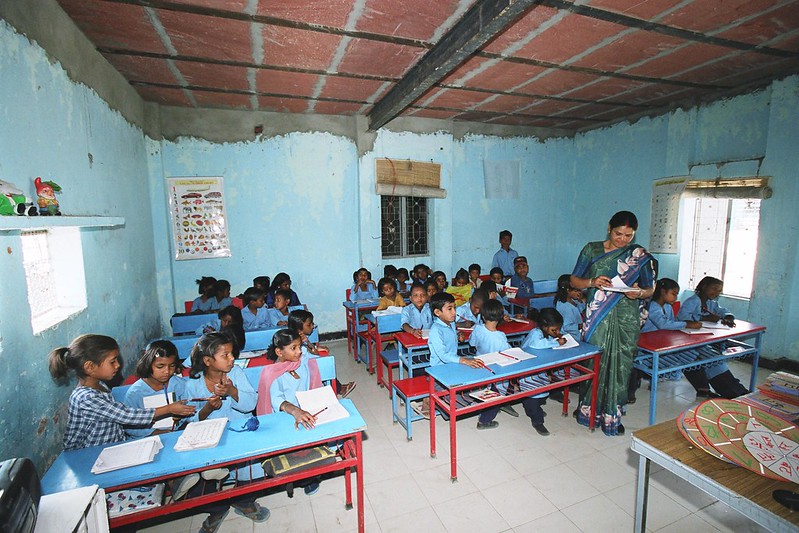5 Organizations Protecting Children’s Rights in India
 India is the world’s most populated country and with such an immense population also comes the need to ensure a safe environment with plenty of developmental tools for children, especially from Lower-Income Groups, to succeed in this rapidly growing world. In India, several organizations are passionately committed to safeguarding and advocating for children’s rights. Their efforts encompass areas such as education, health care, protection from exploitation and ensuring a nurturing environment for every child. These organizations stand as champions for the welfare and future of India’s youth.
India is the world’s most populated country and with such an immense population also comes the need to ensure a safe environment with plenty of developmental tools for children, especially from Lower-Income Groups, to succeed in this rapidly growing world. In India, several organizations are passionately committed to safeguarding and advocating for children’s rights. Their efforts encompass areas such as education, health care, protection from exploitation and ensuring a nurturing environment for every child. These organizations stand as champions for the welfare and future of India’s youth.
Organizations Fighting for Children’s Rights in India
- Salaam Baalak Trust (SBT) is a renowned Indian nonprofit organization dedicated to the welfare of street children. Founded in 1988, it provides shelter, education, health care and vocational training to homeless and marginalized youth in major Indian cities. SBT’s impactful work offers hope and a brighter future to countless underprivileged children. Since its inception, this organization has supported 131,012 children in toto, provided shelter to 35,062 children, distributed 8.5 million meals, engaged 71,715 children to literacy programs, provided vocational training to 6,235 beneficiaries and reunited 26,589 children with their families.
- Save the Children or Bal Raksha Bharat is a renowned nonprofit organization dedicated to improving the lives of underprivileged children in India. Their programs focus on education, health care and protection, aiming to provide children with a better future. Through various initiatives, they strive to ensure every child’s rights are upheld and their potential unlocked. In the year 2022, Save The Children aided 343,994 children through their Health and Nutrition Projects, 332,873 children through their Education projects and 1.6 million children through various other projects.
- World Vision India (WVI) is a prominent humanitarian organization working tirelessly to improve the lives of vulnerable children and communities across India. Established in 1951, it focuses on education, health care and economic empowerment, with a mission to combat poverty and promote child well-being. World Vision India’s extensive outreach has positively impacted countless lives due to its focus on improving ration and household supplies for the economically vulnerable. To date, WVI has provided 206,322 cooked food packages, provided 19,954 households with fry ration and supported 30,758 children with their Child Protection programs.
- SOS Children’s Village is a global organization with a strong presence in India, offering loving homes and holistic care to orphaned and abandoned children. Established in 1964, it provides stable family environments, education and support to ensure children’s emotional and social development. SOS Children’s Village India is a beacon of hope for disadvantaged youth, especially with their long-term customized care interventions such as family-like care, special needs childcare, individual foster care, short stay homes, family strengthening, kinship care, emergency childcare, education and youth skilling. The organizations aid 65,000+ children annually.
- The Delhi Council for Child Welfare (DCCW) is a dedicated organization committed to the welfare of children in India’s capital, Delhi. Founded in 1952, it focuses on providing programs, such as PALNA and BAL CHETNA, which are aimed at encouraging holistic development of the youth in the areas of nutrition, medical services, vocational training, care of abandoned children, adoption, rehabilitation of mentally and physically challenged children and providing day-care and non-formal education. Over 2,500 children benefit from these programs daily. Additionally, approximately 1000 children receive educational sponsorships and around 400 adolescent girls receive vocational training, annually.
The Future
While India has been working significantly to improve child rights in India, the future, however, will continue to demand comprehensive strategies to ensure that children continue to benefit from such programs and organizations. Firstly, legal reforms must enhance and enforce existing protections, addressing issues like child labor and early marriage. Second, prioritizing education accessibility, especially in marginalized communities, is crucial. Third, health care initiatives should focus on reducing child mortality rates and improving nutrition. Additionally, awareness campaigns and community education can empower families and communities to advocate for children’s rights in India.
Collaboration among the government, NGOs and international organizations is vital to implement these measures effectively, ensuring every child in India enjoys a safer, healthier and more prosperous future with their rights protected.
In conclusion, India’s commitment to aiding child rights is crucial for the nation’s progress. By expanding access to education and health care, and fostering community awareness, India can ensure a brighter future for its children. Protecting their rights is not only a moral imperative but also an investment in the nation’s future prosperity and development.
– Piyush Plabon Das
Photo: Flickr
